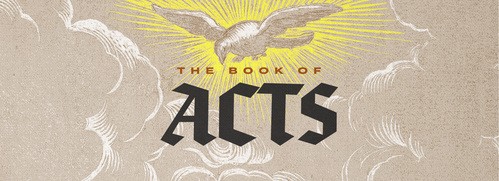Friday Devo

Scripture:
Ephesians 4:21-24
21 Since you have heard about Jesus and have learned the truth that comes from him, 22 throw off your old sinful nature and your former way of life, which is corrupted by lust and deception. 23 Instead, let the Spirit renew your thoughts and attitudes. 24 Put on your new nature, created to be like God—truly righteous and holy.
21 Since you have heard about Jesus and have learned the truth that comes from him, 22 throw off your old sinful nature and your former way of life, which is corrupted by lust and deception. 23 Instead, let the Spirit renew your thoughts and attitudes. 24 Put on your new nature, created to be like God—truly righteous and holy.
Commentary:
4:22 put off your old self. As Christians seek to do this, God makes it a reality, as seen in Col. 3:9–10. Even Paul’s Gentile readers can be part of the new creation in Christ. (As the ESV footnote indicates, “self” is the generic Gk. for “man” or “human”—perhaps an allusion to Adamic man apart from Christ.) Ephesians 4:22 describes the negative side of regeneration, while vv. 23–24 point to the positive side. corrupt. People need inner transformation because their hearts are “deceitful above all things, and desperately sick” (Jer. 17:9).
4:23 renewed. Paul expressed the negative side of the new creation in v. 22 as putting off the “old self,” while vv. 23–24 express the positive side as an entire transformation of believers’ inner selves, focusing here on their minds (see also John 3:3–6; Col. 3:9–10). Christians sometimes distinguish between knowledge of head and of heart, but the Bible shows that they should love and serve the Lord with all that is in them, including their minds, at all times (Deut. 6:5; 10:12; 13:3; Matt. 22:37; Mark 12:30; Luke 10:27). The “renewal” or “transformation” of the mind (Rom. 12:2) is a process in which believers begin to think in new and right ways as they meditate on the truths of God’s Word.
4:24 put on the new self (lit., “man”; see note on v. 22). Paul focuses on the individual aspect of the corporate “new man” as described in 2:15. Believers are created anew in Christ (see also 2:10). Created after the likeness of God further shows the connection with the original creation in Genesis, where “God created man in his own image” (Gen. 1:27; cf. 1 Cor. 15:49).
4:23 renewed. Paul expressed the negative side of the new creation in v. 22 as putting off the “old self,” while vv. 23–24 express the positive side as an entire transformation of believers’ inner selves, focusing here on their minds (see also John 3:3–6; Col. 3:9–10). Christians sometimes distinguish between knowledge of head and of heart, but the Bible shows that they should love and serve the Lord with all that is in them, including their minds, at all times (Deut. 6:5; 10:12; 13:3; Matt. 22:37; Mark 12:30; Luke 10:27). The “renewal” or “transformation” of the mind (Rom. 12:2) is a process in which believers begin to think in new and right ways as they meditate on the truths of God’s Word.
4:24 put on the new self (lit., “man”; see note on v. 22). Paul focuses on the individual aspect of the corporate “new man” as described in 2:15. Believers are created anew in Christ (see also 2:10). Created after the likeness of God further shows the connection with the original creation in Genesis, where “God created man in his own image” (Gen. 1:27; cf. 1 Cor. 15:49).
Questions:
- Paul says in Ephesians 4 that we are to throw off our old, sinful nature, and put on our new nature... the one created to be holy and righteous. What does that look like, practically speaking, on a day-to-day basis? How does one throw off their sinful nature?
- The second challenge was to live SET APART. We are to live differently than the world. We are called to live holy lifestyles, to aim high. Not out of some kind of striving to earn God's approval, but out of love and reverence to the One who calls us his own. After the deaths of Ananias and Sapphira, everyone was filled with the fear of the Lord. We serve an infinitely holy and righteous God. The biggest reason we struggle with verses like these, about God's judgement and wrath, is because we tend to fail to realize how bad our sin actually is. Here is the truth: Your sin is worse than you think. We undervalue our own sin, which causes us to undervalue God's grace, justice and wrath. Where is YOUR fear of the Lord? Do you undervalue your own sin? Is there any hint of hypocrisy in your life, pretending to be something you're not?
Prayer Topics:
- That you would throw off your old, sinful nature.
- That you would live with a healthy fear and reverence for the Lord.
This Week's City 7:
Try to commit to memory!
7. How can I trust that the Bible is still God’s Word today? I trust the Bible is still God’s Word today because Jesus rose from the dead, proving He was God and said His words would never pass away. Through the Holy Spirit, God inspired the writing of the Scripture, determined the canon of Scripture and protected the copying of Scripture so that we might know Him and worship Him to this day.
(Matthew 24:35; 2 Timothy 3:16; 2 Peter 1:16-21; Revelation 22:18-19)(Matthew 5:18; Luke 24:27, 44; John 14:25-26, 15:27, 16:12-13, 17:20; Acts 2:42; Ephesians 3:5; 2 Timothy 3:16; 2 Peter 1:16-21)
(Matthew 24:35; 2 Timothy 3:16; 2 Peter 1:16-21; Revelation 22:18-19)(Matthew 5:18; Luke 24:27, 44; John 14:25-26, 15:27, 16:12-13, 17:20; Acts 2:42; Ephesians 3:5; 2 Timothy 3:16; 2 Peter 1:16-21)

No Comments